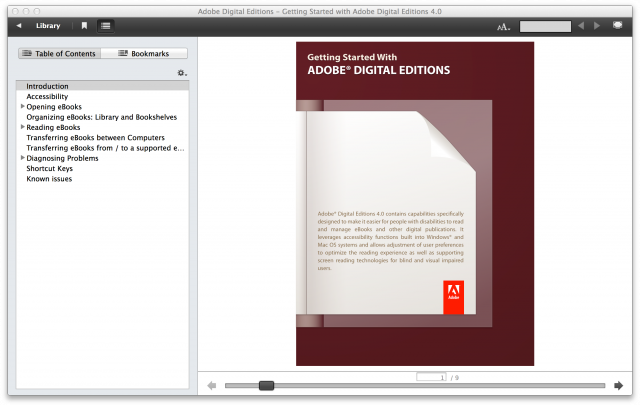
Adobe’s Digital Editions e-book and PDF reader—an application used by thousands of libraries to give patrons access to electronic lending libraries—actively logs and reports every document readers add to their local “library” along with what users do with those files. Even worse, the logs are transmitted over the Internet in the clear, allowing anyone who can monitor network traffic (such as the National Security Agency, Internet service providers and cable companies, or others sharing a public Wi-Fi network) to follow along over readers’ shoulders.
Ars has independently verified the logging of e-reader activity with the use of a packet capture tool. The exposure of data was first discovered by Nate Hoffelder of The Digital Reader, who reported the issue to Adobe but received no reply.
Digital Editions (DE) has been used by many public libraries as a recommended application for patrons wanting to borrow electronic books (particularly with the Overdrive e-book lending system), because it can enforce digital rights management rules on how long a book may be read for. But DE also reports back data on e-books that have been purchased or self-published. Those logs are transmitted over an unencrypted HTTP connection back to a server at Adobe—a server with the Domain Name Service hostname “adelogs.adobe.com”—as an unencrypted file (the data format of which appears to be JSON).
Read 12 remaining paragraphs | Comments